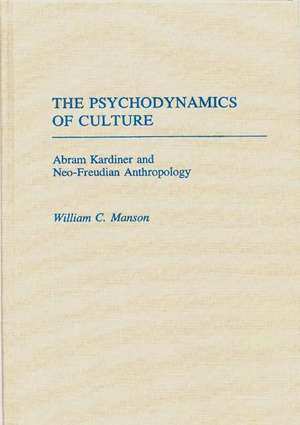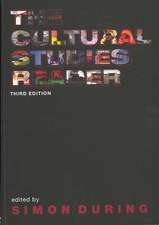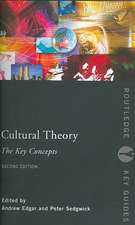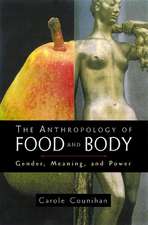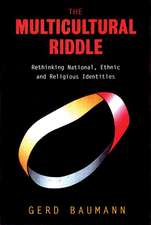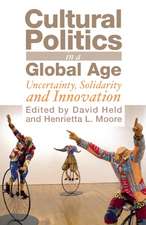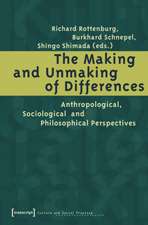The Psychodynamics of Culture: Abram Kardiner and Neo-Freudian Anthropology: Contributions to the Study of Mass Media and Communications,, cartea 3
Autor William Mansonen Limba Engleză Hardback – 13 noi 1988
Manson's study . . . is devoted to retrieving Kardiner from the limbo into which he lapsed some 30 years ago. The author offers a historical reconstruction of the classic psychocultural seminars and reassesses the theoretical and methodological innovations that emerged from them. As a historian Manson displays an impressive command of his materials. He does an admirable job of summarizing the ethnographic data on which Kardiner based his psychodynamic formulations and interpretations. He even manages to evoke something of the emotional flavor of the seminar sessions and the very different personalities involved. This is a consequence of his judicious use of rich primary sources: the exhaustive unpublished reminiscences of Kardiner himself, the private papers of Margaret Mead, and the recollections and/or seminar notes of Aberle, Barnouw, Du Bois and others. . . . a most worthwhile volume, one that should be read by specialists in culture and personality. "American Anthropologist"
While a number of anthropologists in the 1930s and 1940s incorporated isolated elements of Freudian theory into their studies of the interplay of culture and personality, the psychoanalyst Abram Kardiner transcended disciplinary boundaries to forge a genuine psychocultural synthesis. Although the importance of Kardiner's pathbreaking The Individual and His Society is sometimes acknowledged, William Manson argues that Kardiner's work has often been overlooked or misinterpreted by social scientists and psychiatrists. In this first comprehensive study of Kardiner's theoretical contributions, Manson traces the development of Kardiners's psychodynamic formulations and evaluates the impact of his model on neo-Freudian culture-and-personality research and psychological anthropology in general.
The author discusses Kardiner's extended collaboration with leading anthropologists, which resulted in the creation of a psychocultural model for personality formation in different societies. He examines Kardiner's theory of culturally conditioned basic personality and the psychocultural technique for studying the interrelationships of specific cultural practices, personality adaptation, and supernatural belief systems. Manson's analysis places Kardiner's theories in the wider context of concurrent neo-Freudian approaches in anthropology and parallel developments in culturalist psychoanalysis and interdisciplinary social science. A balanced and lucid assessment of a major figure in psychological anthropology, this work will be of interest for psychoanalytic studies, cultural and psychological anthropology, psychodynamics, cross-cultural psychology, and the history of the social/behavioral sciences.
Preț: 435.80 lei
Preț vechi: 603.07 lei
-28% Nou
83.39€ • 87.47$ • 69.42£
Carte tipărită la comandă
Livrare economică 01-15 aprilie
Specificații
ISBN-10: 0313262675
Pagini: 162
Dimensiuni: 152 x 229 x 13 mm
Greutate: 0.41 kg
Editura: Greenwood Press
Colecția Praeger
Seria Contributions to the Study of Mass Media and Communications,
Descriere
While a number of anthropologists in the 1930s and 1940s incorporated isolated elements of Freudian theory into their studies of the interplay of culture and personality, the psychoanalyst Abram Kardiner transcended disciplinary boundaries to forge a genuine psychocultural synthesis. Although the importance of Kardiner's pathbreaking The Individual and His Society is sometimes acknowledged, William Manson argues that Kardiner's work has often been overlooked or misinterpreted by social scientists and psychiatrists. In this first comprehensive study of Kardiner's theoretical contributions, Manson traces the development of Kardiners's psychodynamic formulations and evaluates the impact of his model on neo-Freudian culture-and-personality research and psychological anthropology in general.
The author discusses Kardiner's extended collaboration with leading anthropologists, which resulted in the creation of a psychocultural model for personality formation in different societies. He examines Kardiner's theory of culturally conditioned basic personality and the psychocultural technique for studying the interrelationships of specific cultural practices, personality adaptation, and supernatural belief systems. Manson's analysis places Kardiner's theories in the wider context of concurrent neo-Freudian approaches in anthropology and parallel developments in culturalist psychoanalysis and interdisciplinary social science. A balanced and lucid assessment of a major figure in psychological anthropology, this work will be of interest for psychoanalytic studies, cultural and psychological anthropology, psychodynamics, cross-cultural psychology, and the history of the social/behavioral sciences.
